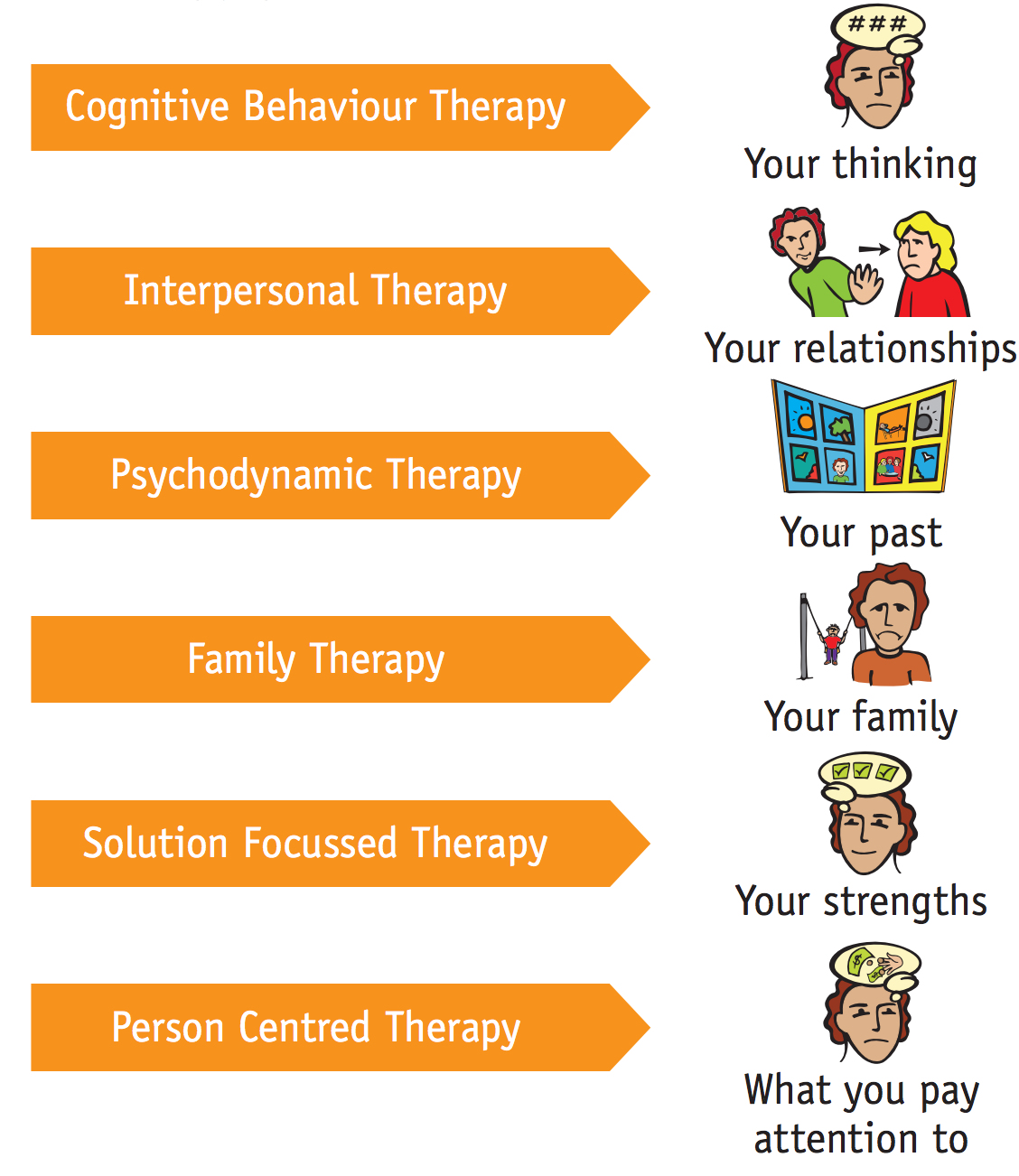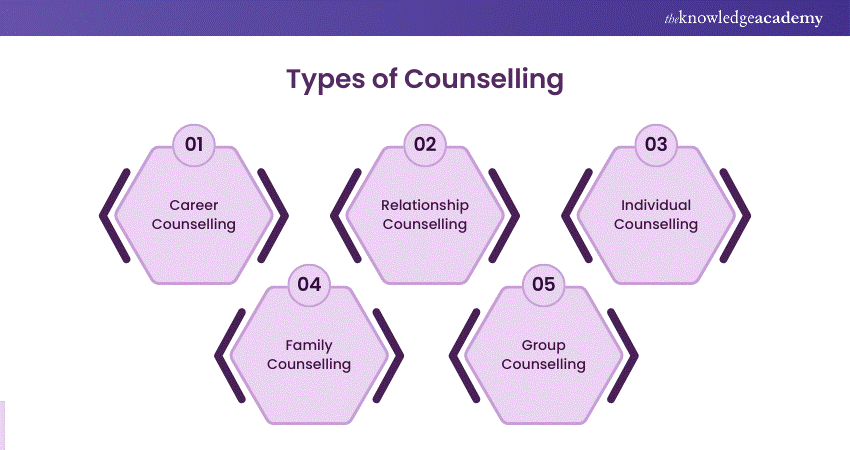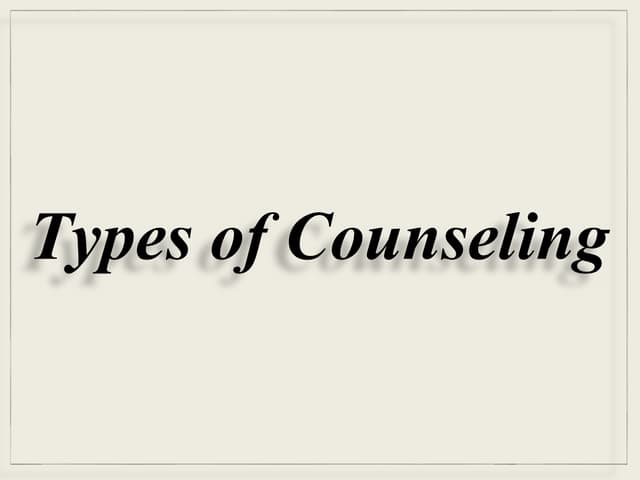A Comprehensive Guide to the Different Sorts Of Coaching and Their Impact
Counseling includes a selection of healing techniques, each made to meet special psychological wellness needs. From the structured methods of Cognitive-Behavioral Treatment to the empathetic nature of Person-Centered Therapy, these modalities supply distinct pathways to personal growth. Household treatment and Dialectical Behavior modification provide additional frameworks for healing, while team counseling promotes neighborhood assistance. Recognizing these varied methods can brighten their extensive influence on specific wellness. What remains to be explored are the intricacies of each approach.

Understanding Cognitive-Behavioral Therapy (CBT)
Although several restorative approaches exist, Cognitive-Behavioral Therapy (CBT) sticks out as a result of its structured, ambitious nature. This form of therapy is based upon the property that thoughts, feelings, and actions are adjoined, and by changing unfavorable thought patterns, individuals can modify their emotional reactions and activities. CBT uses various methods, such as cognitive restructuring, which aids customers identify and challenge distorted ideas. Behavior activation motivates engagement in pleasurable tasks to deal with clinical depression.
Generally, CBT is a short-term treatment, commonly long-term between 12 to 20 sessions, making it obtainable for those seeking quick results. Its efficiency has actually been well-documented in dealing with stress and anxiety problems, clinical depression, and other psychological wellness issues. The therapist's function is to guide clients via workouts and homework assignments, promoting self-awareness and advertising long-term coping methods. This useful technique empowers individuals to take control of their psychological wellness, ultimately leading to improved life contentment.
Exploring Person-Centered Therapy
Person-Centered Therapy, established by Carl Rogers, provides a different strategy to Cognitive-Behavioral Therapy by highlighting the customer's subjective experience. This restorative design prioritizes the individual's perspective, fostering a setting of empathy, genuine favorable respect, and authenticity. By allowing clients to explore their sensations and ideas without judgment, therapists facilitate personal development and self-discovery.
The core tenet of Person-Centered Therapy is the belief that people have the integral capability for self-healing and personal development. In this setup, the therapist works as a supportive guide instead of a regulation authority, urging customers to take charge of their very own trip. This approach is especially reliable for those grappling with issues such as reduced self-confidence, stress and anxiety, or depression, as it encourages them to face and recognize their emotions. Eventually, Person-Centered Therapy cultivates a solid restorative alliance, cultivating trust and openness vital for purposeful adjustment.
The Function of Family Therapy in Recovery
Family therapy offers as an essential part in the healing process for individuals and their connections. This healing approach concentrates on boosting communication, fixing disputes, and fostering deeper connections amongst member of the family. By addressing useless characteristics, family members treatment motivates each participant to express their thoughts and feelings in a secure atmosphere, promoting understanding and empathy.

The impact of family members therapy extends beyond the sessions, as enhanced relationships can result in improved psychological health for all involved. In general, household treatment plays an essential duty in healing by fostering unity, strength, and common support among family participants, ultimately leading them towards a healthier, a lot more fulfilling life together.
Unboxing Dialectical Behavior Modification (DBT)
Building on the structure of therapeutic approaches that enhance psychological health, Dialectical Behavior modification (DBT) uses a structured framework for individuals fighting with intense feelings and behavior obstacles. Developed by Marsha Linehan, DBT integrates cognitive-behavioral strategies with mindfulness practices, intending to Continue aid clients handle overwhelming sensations and boost social effectiveness.
The treatment is especially helpful for those identified with Borderline Individuality Condition read here yet is additionally applicable to a range of other psychological wellness concerns. adhd counselling. DBT contains individual treatment sessions and abilities training groups, concentrating on four vital ability collections: mindfulness, distress resistance, feeling guideline, and interpersonal efficiency
The Advantages of Team Counselling Procedure
While individual therapy offers important understandings, group therapy sessions use special advantages that can considerably boost the restorative experience. One vital advantage is the sense of community that arises among individuals. People typically discover convenience in sharing their experiences with others dealing with comparable obstacles, cultivating a helpful environment that reduces feelings of isolation.
Additionally, team sessions motivate varied perspectives, allowing participants to gain from each other's coping methods and understandings. This cumulative knowledge can lead to improved analytical capacities and a more comprehensive understanding of individual issues.
In addition, team counseling usually advertises responsibility, as participants inspire one another to pursue their objectives and comply with their dedications. The cost-effectiveness of group treatment makes it an accessible option for numerous people seeking support. On the whole, the collaborative nature of team therapy sessions can substantially enrich the therapeutic trip.
Often Asked Questions
What Qualifications Do Specialists Need to Exercise Therapy?
Specialists usually call for discover here an appropriate level in psychology or counseling, in addition to supervised clinical experience. Additionally, they need to get appropriate licensure or accreditation to practice lawfully, guaranteeing adherence to expert requirements and honest guidelines.
Just how Do I Choose the Right Kind of Therapy for Me?
Choosing the right kind of therapy includes reviewing individual needs, exploring various strategies, considering specialist specialties, and looking for suggestions. Understanding private goals and preferences can greatly improve the efficiency and complete satisfaction of the restorative experience.

Are Online Counseling Procedure as Effective as In-Person Ones?
The efficiency of on the internet therapy sessions compared to in-person ones frequently depends on specific preferences and circumstances. Study indicates that both techniques can yield positive end results, though some might find greater convenience in face-to-face communications.
For How Long Does Therapy Normally Last?

What Should I Anticipate During My First Counseling Session?
Throughout the initial counseling session, clients can expect an intro, discussion of their issues, facility of goals, and an introduction of the counseling procedure - low cost therapy. This preliminary conference intends to build connection and warranty comfort